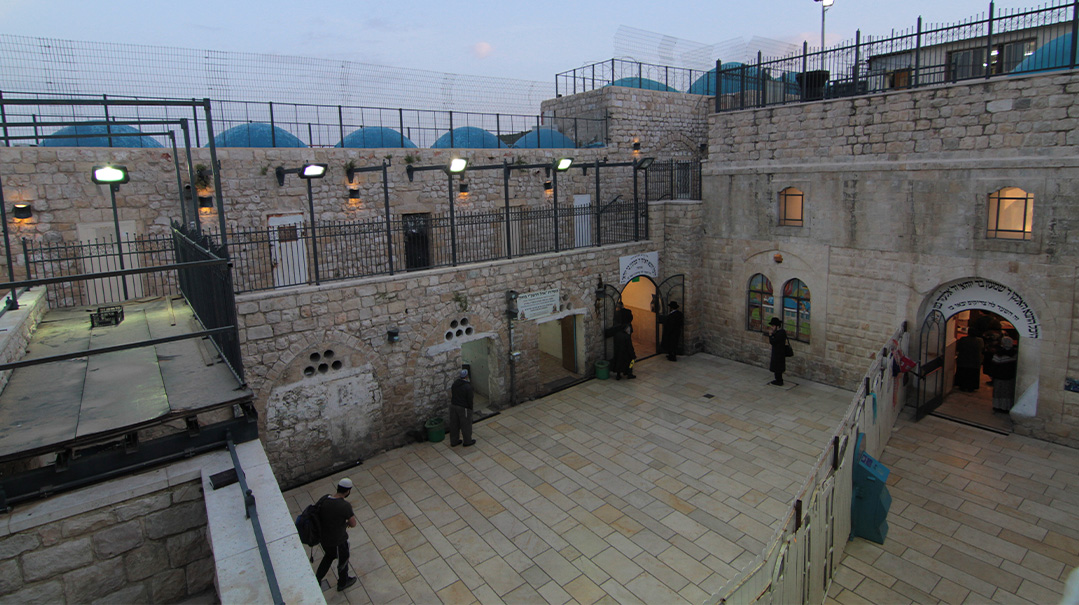Meeting Him on the Mountain

A disaster in Meron feels nothing less than a slap in the face

WE
start to count the Omer, day by day by day. Each brings us closer to Shavuos, and closer to day 33. The dust still hasn’t settled on last year’s memories. I remember that fateful Friday, Shabbos…
I sit on the couch long after nightfall and stare at the white tablecloth and the remnants of Shalosh Seudos in a daze. A close friend of my husband’s has passed on in the tragedy, and my husband is shaken to the core. And it’s not just the friend, it’s the place. Meron.
It’s been a blur of messages and images: What? Who? Horrible answers and stumbling into Shabbos. By now I should gather myself, pick up the pieces, but my mind is thick with cotton wool.
What is it? It’s not like we haven’t known tragedy; bombs and gunmen and wars and freak accidents on highways. Then I let out a sigh and said some Tehillim. Why is this different?
I think of Meron on Lag B’omer, the last time I’d been there, several years ago. I’d come to Yerushalayim for a few days with a friend; both of us needed the break. Between a writers’ conference we wanted to attend and Lag B’omer the next day, that was all the reason we needed. At the last minute, my friend, afraid of the crowds, opted not to come up to Meron, and I went with a different friend and her mother.
I hadn’t seen them in a while, and her mother wasn’t the quiet woman I remembered. Maybe she’d changed. Maybe it was the day. But she came prepped with notes like a seminary girl, and she held forth like a rebbetzin. She had copies of the Lag B’omer tefillos, and as the bus cruised along the highway, then inched through yet another checkpoint, we went through the translation and the explanations of “Bar Yochai” and “Amar Rabi Akiva.”
There’d been a breakout of forest fires, and the bus journey took six hours instead of three. “A gitte zach kimt oon shver — a good thing comes with difficulty,” my friend’s mother said.
Finally, I stood there inside the tziyun, among thousands of women, hundreds of smoky tealights. There was one particular tefillah on my mind, playing in my head like a desperate song on repeat.
Sometimes you don’t want to hear other people whimper and wail as they talk to Hashem, you resent the whispers so loud they may well be shouted. But on Lag B’omer, inside the tziyun, the other women’s tefillos aren’t only a backdrop, they become part of your tefillah. I davened aloud, I davened quietly, I sang out words to Hashem, and nobody could hear. In the cacophony, there was privacy. In the cacophony, there was the most personal tefillah of all. We stood pressed together, hot and stifled, but together we transcended.
Lag B’omer in Meron is a summer-time Yom Kippur. An arduous aliyah l’regel. That’s why we come here, to find You. In the tens of thousands of urgent faces, in the music that lifts us off our feet, in the shove and tumble of the crowd, in the sun that sets over a makeshift grassy parking lot where buses come and go, but there’s no room and we wait half the night to get home.
And this is where You strike us.
Here?
I sit on the sofa smarting. A disaster in Meron feels nothing less than a slap in the face.
They came after a year when we couldn’t come because Covid had shut us out. 100,000 of us made it, hearts open, so joyous to be here. Did You not want us then either?
I know there is closeness in a potch, that these neshamos were ready to go, that they ascended like the pure offerings they were. But, but —
For a moment I see the determined press of Aharon’s lips, the strength of his silence. We learn the story from when we’re young, but do we really hear it? Do we understand what it meant that his two sons were felled in the Kodesh Hakodoshim just when they were bringing a korban? I see the confused eyes of the Yidden watching them smolder to nothingness. To be struck just where we thought we were close.
Throughout the past year, we tried to go on, even as we don’t understand, as explanations are offered but on some level they don’t resonate. Please take us back, return an entreaty with an embrace.
This year, thousands of us are gearing up to come back to a safer, more orderly place, though we know that it wasn’t about logistics but about Your Will.
We will yet meet You on the mountaintop, because we cannot keep away.
And I know that however it feels, You will meet us there too.
(Originally featured in Family First, Issue 792)
Oops! We could not locate your form.






